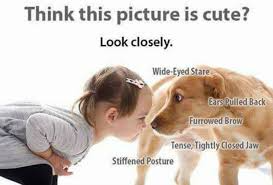Importance of correct Puppy Socialisation
Adrian Kollnberger • May 21, 2020
Puppy
Socialisation
- Its not just
about
dogs!

Puppy Socialisation.
For my first blog I thought I would start at the beginning - one of the most common training issues and one of the most important that I am asked my advice on – Puppy Socialisation.
The majority of new puppy owners are aware of or know the importance of the term Puppy Socialisation – the clue is in the title and it seems like an easy enough task , you just take your new puppy out and expose him to new things such as other dogs.
Socialisation is so much more than that – it means learning how to live in and deal with today’s world. It means introducing your puppy to as many different experiences as possible in a positive and controlled way so that they become comfortable living in human society. This, in turn, means introducing them to as many different types of people, environments, buildings, sights, sounds, animals and other dogs as possible.
If Socialisation Is done wrong it can cause behaviour and Character issues that can affect your puppies’ character for the rest of their life, however, done right and your puppy will develop in to a balanced and confident dog.
Puppies are emotional and experience sponges.
Like young children the experiences that puppies have in their formative months can remain with them for the rest of their lives (both good and bad) For example, if a toddler has a negative experience with a dog at an early age, this experience can develop into a fear of dogs that affects them for a long time.
The same is with puppies if they have a negative or positive experience at an early age these experiences can affect their character development and their attitude towards certain situations for the rest of their lives.
Puppies have developmental fear stages. One day your puppy may seem confident and outgoing and the next they can appear fearful and apprehensive. It is critical not to push your puppy past or through these stages in a negative or overwhelming way.
Imagine if you are feeling fearful or nervous and then someone tries to walk you past a backfiring car or noisy piece of plant machinery – you may never be comfortable again with loud noises.
Then, to help you get over this fear, you are put on a building site with noises going on everywhere, you are then faced with an overwhelming amount of fear. The term for this is called flooding, this can make the fear a lot worse not better and could form more of a terror response than you had before.
Now see this from a puppy’s perspective – you take them out for their first walk after inoculations straight on to a busy high street, the puppy is already nervous about the new environment and is going through a fear stage. A loud motorbike goes past causing the puppy to startle and jump. You manage to settle the puppy and get them moving again, then more noisy traffic goes by reinforcing the fearful response. The next day the puppy is taken on the same walk and the same thing happens, the puppy never gets the chance to recover or get over his fear in a controlled manner – you now have a dog who is scared of traffic (especially motorbikes) and when older could develop a behaviour of barking and lunging at traffic.
A puppy that is well – socialised usually develops into a safer, more relaxed and enjoyable pet dog. Well socialized dogs also live a much more relaxed, peaceful and happy life as opposed to dogs that are stressed or fearful of experiences in their environment.
How to help your puppy
When it comes to safe socialisation the main priority is to take in to account your puppies body language and behaviour. Animal behaviour is very easy to read and a puppy will give you multiple signs if they are unsure or fearful – sitting down, shying away, whining/growling and may even show aggression in attempts to get away from whatever is causing the fear.
The only way for a dog to deal with a fearful situation is to “fight or flight”. If a dog feels that they cannot get away (flight) they must choose fight (aggression) and you could very well be teaching aggression as a coping mechanism when they are uncomfortable.
It is important to encourage independence while not creating fear when it comes to sights and sounds that your puppy will encounter. It is important not to wrap the puppy up in cotton wool or reinforce the puppies fear, but also avoid overwhelming him to “get him over” the issue.
Good, respectable and healthy socialization takes time.
As humans we expect our puppies to work it out for themselves or we see the term “socialisation” as meaning becoming sociable with their own kind. The term socialisation refers to socialising with the world and the environment that the puppy lives in – not just other dogs.
What age is best for Puppy Socialisation?
7 – 9 weeks is probably the most critical period in a puppy’s development. This why responsible breeders will not let their puppies go until after this stage. However, puppies are most accepting of new experiences between 3 – 12 weeks old. From about 12 to 18 weeks the opportunity to easily introduce your puppy to new situations ends and after that it gradually becomes harder to get the puppy to accept and enjoy something new that he is initially unsure of. Past 18 weeks it is even more difficult, and in some dogs impossible to introduce a dog to a new frightening (in his opinion) experience.
Socialisation requires exposure to the types of people, animals, places, sounds and experiences that your dog will experience and be comfortable with later in life.
Depending where you live and your life style this may include trains, heavy traffic, children (old and young), the school gates at school drop off and pick up time, cats , sheep, horses – the list is endless but as you can see it is not just other dogs.
It is impossible to cover absolutely everything that your puppy will experience in life however, small amounts of stress when you introduce him to new things are good. So the more experiences that you cover during the Socialisation period of 3 to 12 weeks the more your puppy will be able to generalize from these experiences and by learning to deal with small levels of stress they he will learn to cope with new experience and situations better.
Vaccinations during early Socialisation.
Young puppies are not fully protected against the diseases that they are vaccinated for until they have had all their injections. The reason for this is that the antibodies that they get from their mother can interfere with the effectiveness of the vaccines.
The problem lies with the fact that by the time that the puppy has had its inoculations the puppy is usually 12-16 weeks old and if they can’t go out until after they are vaccinated then we lose that crucial period of socialisation.
The good news is that if you are careful and control your puppies socialising the risk of infection is quite small compared to the risk of your puppy developing behaviour issues later in life.
Some Safe Ways to introduce your Puppy to the world if they are not vaccinated are:
• Drive to a parade of shops or car park. Park and sit in your car with the doors open, puppy on your lap and let him watch the world go by. If someone comes up to say hallo (be careful that your puppy does not get swamped) give them a treat to give to your puppy then let them say hallo.
• Invite friends and family to the house and let them meet and interact with your Puppy.
• Take your Puppy to the school gates either put a mat on the ground for him or if he is small enough, carry him. – but control the interactions and do not allow him to get swamped by the children. If it becomes too much, move away and let him watch from a distance.
• Take your Puppy on car rides through different areas, garages, car washes and out into the country to see different farm animals.
• Arrange play sessions with other puppies and adult dogs who you know are vaccinated and friendly.
• If he is small enough carry him down your High street and let strangers say hallo to him and give him treats.
• Sit on your drive or out the front of your house with Puppy on your lap or on a mat beside you and let him watch the world go by (this is a good introduction if you live on a busy road)
N.B These sessions do have to be long – 10 – 15 minutes at most. Just enough for the Puppy to take everything in, not get over tired and to finish the session on a positive note.
Puppy Classes.
A great way to get your puppy started off on the right foot is to attend a Puppy Class. These classes should cater specifically for puppy training and controlled socialisation. A good puppy class should not just concentrate on allowing your puppies to play with each other in an uncontrolled manner. This can cause all sorts of behaviours in your puppy from nervousness to over excitement in the presence of other dogs or, at worse, aggressive behaviours towards other dogs.
A good puppy class will supply a balance of basic obedience skills, practical life skills, advice and controlled periods of play where puppies and owners learn the principles of good socialisation.
If you are considering attending a puppy class always do your homework. Ask around about a good puppy class – ask at your vets, ask other dog owners, read reviews on Google etc. when you find one see if you can attend and watch a class in progress. Ideally without your puppy so you can concentrate on the class. If the class appears chaotic and out of control, or there are not enough instructors to go round, or the puppies and owners aren’t having fun, or you feel uncomfortable about the methods being used my advice would be to find another class.
The important thing to remember is to have fun with your puppy . Play and interact with them at every opportunity and make socialisation enjoyable.
Below is my Puppy Socialisation check list. Feel free to download a copy and use it to help introduce your puppy to their world. The list is not exhaustive - add to it if you need to. Do not worry if you can not tick all the boxes , but remember the more you can introduce your puppy to , the more balanced they will be.
Good Luck!
Adrian - ABC for Dogs
Contact Us
Thank you for contacting us.
We will get back to you as soon as possible.
We will get back to you as soon as possible.
Oops, there was an error sending your message.
Please try again later.
Please try again later.






